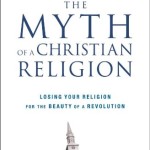We run our website the way we wished the whole internet worked: we provide high quality original content with no ads. We are funded solely by your direct support. Please consider supporting this project.

False Gods in the Church
We often think of an idol as a statue, but an idol can be anything we use to meet the needs that only God can meet. In other words, a false god.
There is no end to the false gods we create. In Western cultures we often strive to feel worth and significance by acquiring money, possessions, and power. We bow down to the false gods of materialism and control. Some try to relieve their inner emptiness by trying to get approval for being sexy, talented, or successful. They bow down to a false god of fame. Some feed their hunger for life by convincing themselves they’re special to God because they believe all the right things and engage in all the right behaviors—in contrast to others who believe the wrong things and engage in all the wrong behaviors. These bow before the false god of religion, which is one of the ways that idols end up in the church.
When we chase after false gods, we seldom realize what we’re doing. We don’t think of it as idolatry. In fact, it’s possible to bow to false gods while believing you’re bowing to Jesus Christ. What we believe often has little to do with reality.
In the West, we tend to attach great importance to what we believe. This seems to be especially true of Christians. We treat beliefs as though they have magical power, as though merely believing something makes it so. For instance, many assume that believing Jesus is Lord of their life magically makes him Lord. This is undoubtedly why so many evangelical churches spend an exorbitant amount of energy getting people to make a one-time confession of belief.
The truth is, merely believing Jesus is Lord no more makes him Lord of my life than believing Vladimir Putin is the president of Russia makes me his follower. For Putin to be my leader, I would need to submit my life to him and become a citizen of Russia. Likewise, for Jesus to be my Lord, I need to submit my life to him and become a citizen of his Kingdom.
This does not mean that beliefs are not important. Obviously it’s impossible to surrender to Jesus unless you first believe that he is Lord. Still, the belief is not itself the surrender. Embracing a belief is something you do in your mind. Actually surrendering your life is something you can only do with your will.
The important question, then, is not what you believe. The important question is what you decide to do, moment-by-moment, on the basis of what you believe.
—Adapted from Present Perfect, pages 46-48
Photo credit: Criss! via Visual hunt / CC BY
Category: General
Tags: Belief, Religious Idolatry
Related Reading

Does Analytic Thinking Make You Less Religious?
Andrew Aghapour wrote an article that was posted in Religion Dispatches questioning the findings of studies that concluded that analytical thinking negatively affects religious belief. In the article, Does Analytic Thinking Erodes Religious Belief? Aghapour argues that there are flaws in the studies and that the biggest culprit was the most likely the population used…

Read This Before You Drop the H-Bomb (“Heretic”) on a Fellow Christian
Image by yhoitink via Flickr Greg co-wrote the following article on heresy with Frank Viola for BeliefNet. Check it out! “Heretic.” It’s a favorite word that many Christians have no problem dropping on the heads of their fellow sisters and brothers. In common parlance, the term is used to describe any person who disagrees with “orthodox Christian teaching.”…

Religion that Blinds Us to God
For a variety of reasons, many Jews at the time of Jesus had come to believe that heaven had been closed since the writing of the last book of the Old Testament. God was distant and no longer active among his people. Their religion focused on holding fast to the law God had given in…

Quotes to Chew On: The Church vs. Religion
“It’s time for the Church to free itself from the religious holiness of the Pharisees and begin to manifest the holiness of the Kingdom. It’s time for us to realize that our calling is to serve people sacrificially–including prostitutes, tax collectors, and enemies–rather than judging them. It’s time we ceased getting Life from the rightness…

9 Reasons Faith ≠ Certainty
One of the things that Christians typically believe in and that I’ve struggled with a great deal is the concept of faith. Like most Christians, I once assumed a person’s faith is as strong as that person is certain. And, accordingly, I assumed that doubt is the enemy of faith. That is, after all, how…

A Rational Defense of Belief in God
The New York Times recently posted a review of Alvin Plantinga’s book, Where the Conflict Really Lies: Science, Religion, and Naturalism. In it, Plantinga argues on philosophical grounds that, among other things, theism is not in conflict with science, that a belief in naturalism along with evolution is contradictory, and that “Faith…is another basic way of forming beliefs, distinct…
